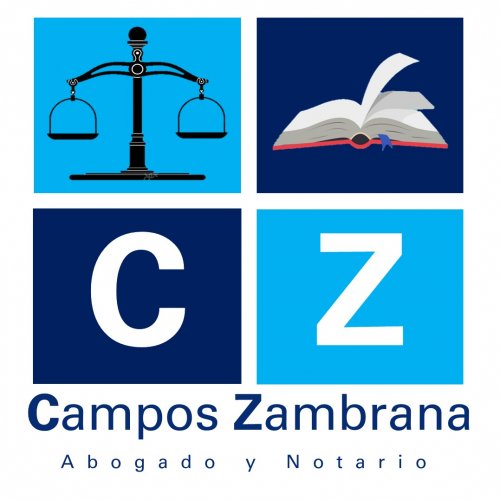Best Child Custody Lawyers in Jinotepe
Share your needs with us, get contacted by law firms.
Free. Takes 2 min.
Free Guide to Hiring a Family Lawyer
List of the best lawyers in Jinotepe, Nicaragua
About Child Custody Law in Jinotepe, Nicaragua
In Jinotepe, Nicaragua, Child Custody laws are designed to protect the interests and wellbeing of the child after divorce or separation. As far as possible, the Nicaraguan judicial system aims to ensure both parents share the responsibility of caring for their children, unless circumstances not conducive for the child's wellbeing are present. In general, the primary focus is on ensuring the child's best interest, taking into account factors such as childcare abilities of parents, the child's age, health, emotional ties, and the child's wishes if mature enough to articulate them.
Why You May Need a Lawyer
In cases of separation or divorce, it is essential to hire a lawyer due to the inherent complexities tied to child custody. Matters such as custody arrangements, visitation rights, and child support payments can all become contentious and complex. A lawyer will help protect your rights, manage paperwork, negotiate on your behalf, and provide counsel in your best interests. Also, in situations involving parental abuse, neglect, or where the child's safety is at risk, it becomes even more crucial to have legal representation to guide and safeguard the child's and your rights.
Local Laws Overview
In Nicaragua, both parents are presumed to have shared parental authority and joint custody is encouraged unless one parent is proven unfit. However, courts generally prioritize the child's wellbeing and stability over other factors when deciding ultimate custody. They can award sole physical custody to one parent, with the other having visitation rights. Financial obligations, primarily the child's maintenance, are shared by both parents. If one parent is incapable of fulfilling these obligations, the burden may fall onto the other parent.
Frequently Asked Questions
1. What are the types of child custody in Jinotepe, Nicaragua?
The common types of custody include physical custody (where the child lives), legal custody (legal decision rights over child's upbringing), and shared custody arrangements (both parents equally participate in upbringing and decision-making).
2. At what age can a child decide which parent to live with?
In Jinotepe, Nicaragua, a child capable of forming an intelligent preference, typically around the age of 12, may be given a voice in the custody decision, but the ultimate decision is up to the court.
3. Can a parent relocate with a child?
A parent wishing to relocate with a child may need the consent of the other parent or a court order. It’s essential to consult a lawyer to understand all legal implications before taking such steps.
4. How are child support amounts determined?
Child support is usually determined based on both parents' income, the child's needs, and the custody arrangement.
5. What happens if a parent fails to pay child support?
If a parent fails to meet child support obligations, they could face legal consequences including fines or possibly jail time. Child support enforcement is taken very seriously in the Nicaraguan justice system.
Additional Resources
For further information, governmental bodies such as Family Courts in Jinotepe or National Council for the Care and Protection of Children and Adolescents can be approached. Additionally, Non-governmental organizations like CISAS (Center for Health Information and Advisory Services) may be helpful.
Next Steps
If you are seeking legal advice in child custody matters, consider hiring a local lawyer specializing in family law. Ensure to gather all relevant documentation and evidence concerning the child's wellbeing. It's crucial to voice any particular concerns, risks, or disputes accurately to your lawyer. Remember, the focus should always remain on protecting the child's best interests.
Lawzana helps you find the best lawyers and law firms in Jinotepe through a curated and pre-screened list of qualified legal professionals. Our platform offers rankings and detailed profiles of attorneys and law firms, allowing you to compare based on practice areas, including Child Custody, experience, and client feedback.
Each profile includes a description of the firm's areas of practice, client reviews, team members and partners, year of establishment, spoken languages, office locations, contact information, social media presence, and any published articles or resources. Most firms on our platform speak English and are experienced in both local and international legal matters.
Get a quote from top-rated law firms in Jinotepe, Nicaragua — quickly, securely, and without unnecessary hassle.
Disclaimer:
The information provided on this page is for general informational purposes only and does not constitute legal advice. While we strive to ensure the accuracy and relevance of the content, legal information may change over time, and interpretations of the law can vary. You should always consult with a qualified legal professional for advice specific to your situation.
We disclaim all liability for actions taken or not taken based on the content of this page. If you believe any information is incorrect or outdated, please contact us, and we will review and update it where appropriate.








